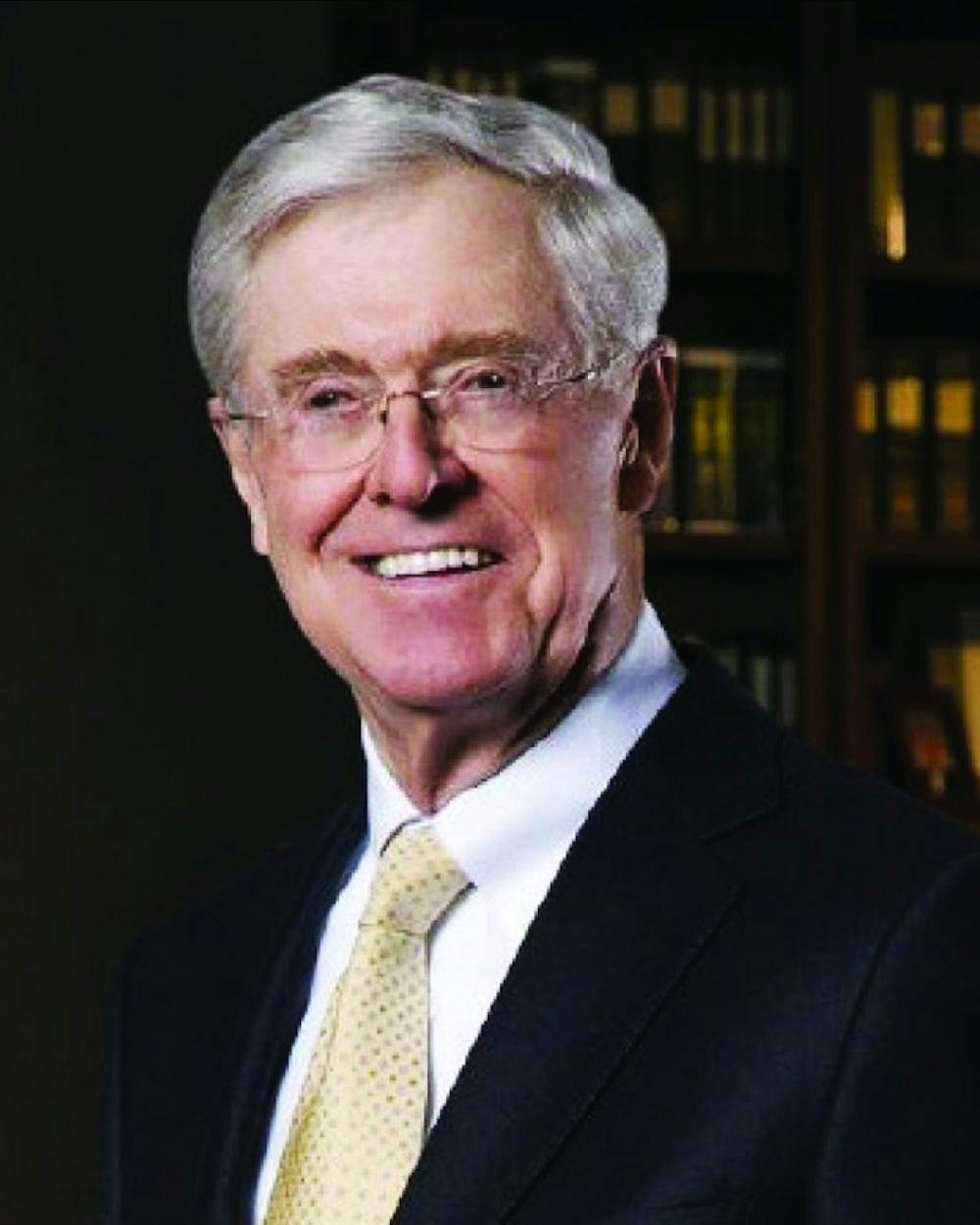Of the legion of Penn benefactors and gift givers, no two may be more infamous than David and Charles Koch.
The industrialist siblings contributed more than $12.7 million to 163 colleges and universities in 2012. According to the Koch Family Foundations website, Penn is one of those recipient schools, having received a one-time grant of $5,000.
The Kochs are notable mostly for their political advocacy committee, Americans for Prosperity, which spent at least $33.5 million on anti-Obama advertisements during the 2012 election cycle.
Vice President for University Communications Stephen MacCarthy confirmed the $5,000 grant from the Charles Koch Foundation to support the PPE Freedom Lecture series, a libertarian-leaning program which looks to analyze the meaning of freedom by bringing in speakers, hosted by the Philosophy, Politics, and Economics Department.
MacCarthy explained that Penn fosters relationships with some donors through the Development Office. However, no such relationship exists with the Koch brothers themselves. Instead, PPE professor Sebastiano Bavetta said, the PPE Department reached out to the Koch Foundation because of its “interest in the analysis of freedom.”
The Koch Foundation did not respond to a request for comment.
Previously, MacCarthy had declined to elaborate on Koch Foundation grants, citing Penn’s policy to “not discuss the details of donors’ philanthropy.”
Bavetta used the speakers’ diversity of beliefs — citing the three speakers invited so far, Ariel Rubinstein, Jerry Gaus and John Tomasi — as an example of the series’ independence from the Koch Foundation’s principles.
“Ariel Rubinstein has no particular political intention. Jerry Gaus is a philosopher who might have some sympathy toward their views, but he is not openly sponsoring or favoring the kind of libertarian ideas the Koch Foundation is supporting,” Bavetta said. “I have not received any kind of pressure [from the Kochs].”
The Kochs’ recent ventures into education spending have caused uproar at other universities, where students and faculty fear a political mandate attached to the grant money.
A $1.5 million pledge to Florida State University’s economics department came with a stipulation that a “Koch-appointed advisory committee select professors and conduct annual evaluations,” reported the Tampa Bay Times. The pledge stipulated that faculty “retain only the illusion of control,” with the Koch Foundation coordinating most staff hires, according to the report.
The enforcement of a conservative political agenda appears to be the theme of the Kochs’ education spending. At George Mason University, the Kochs have poured in $8.49 million, partly to set up the Institute for Humane Studies — which specializes in researching the “practice and potentials of freedom” — and is now responsible for the ongoing funding of the PPE Freedom Lectures, which has started at an additional $4,000, said Bavetta. The chairman of the Institute’s board is none other than Charles Koch himself.
Other Koch-sponsored influence is more expressly biased. In July, the Huffington Post reported on a Koch-sponsored nonprofit, Young Entrepreneurs, which recruits teachers to support a customized curriculum fashioned to the brothers’ conservative political agenda. According to the Post’s report, the YE curriculum teaches that, “Government, in short, is the enemy of liberty.”
Official statements from schools receiving Koch Foundation aid have uniformly denied that the donations “color classroom curricula.”
Meanwhile, students at Florida State have started a national movement, entitled “UnKoch My Campus,” to disassociate corporate influence from curricular spending. According to a November article from Inside Higher Ed, students at nearly 30 colleges have called “for a separation of college and corporation.”
Students at George Mason are especially enraged at their school’s failure to disclose information on private donations. In response, student leaders established “Transparent GMU,” a group that has questioned the efficacy of Koch-sponsored organizations like the Institute for Humane Studies.
Politically-active Penn students seem comfortable with the lecture series’ source of funding. President of the Government and Politics Association and College sophomore Sarah Simon was happy to see libertarian beliefs sponsored on campus. “We don’t often address libertarian beliefs on campus," she said.“If that money happens to come from the Koch Foundation, I don’t necessarily see a problem with it.”
The PPE Department seemed pretty upfront about the donation through listing it on their website,” she added, referring to a line on the department’s website that acknowledges the series as “funded by the Charles Koch Foundation.”
Bavetta, meanwhile, has a much simpler, alternative explanation. “If you want to influence somebody, you have to give them more than $5,000.”



